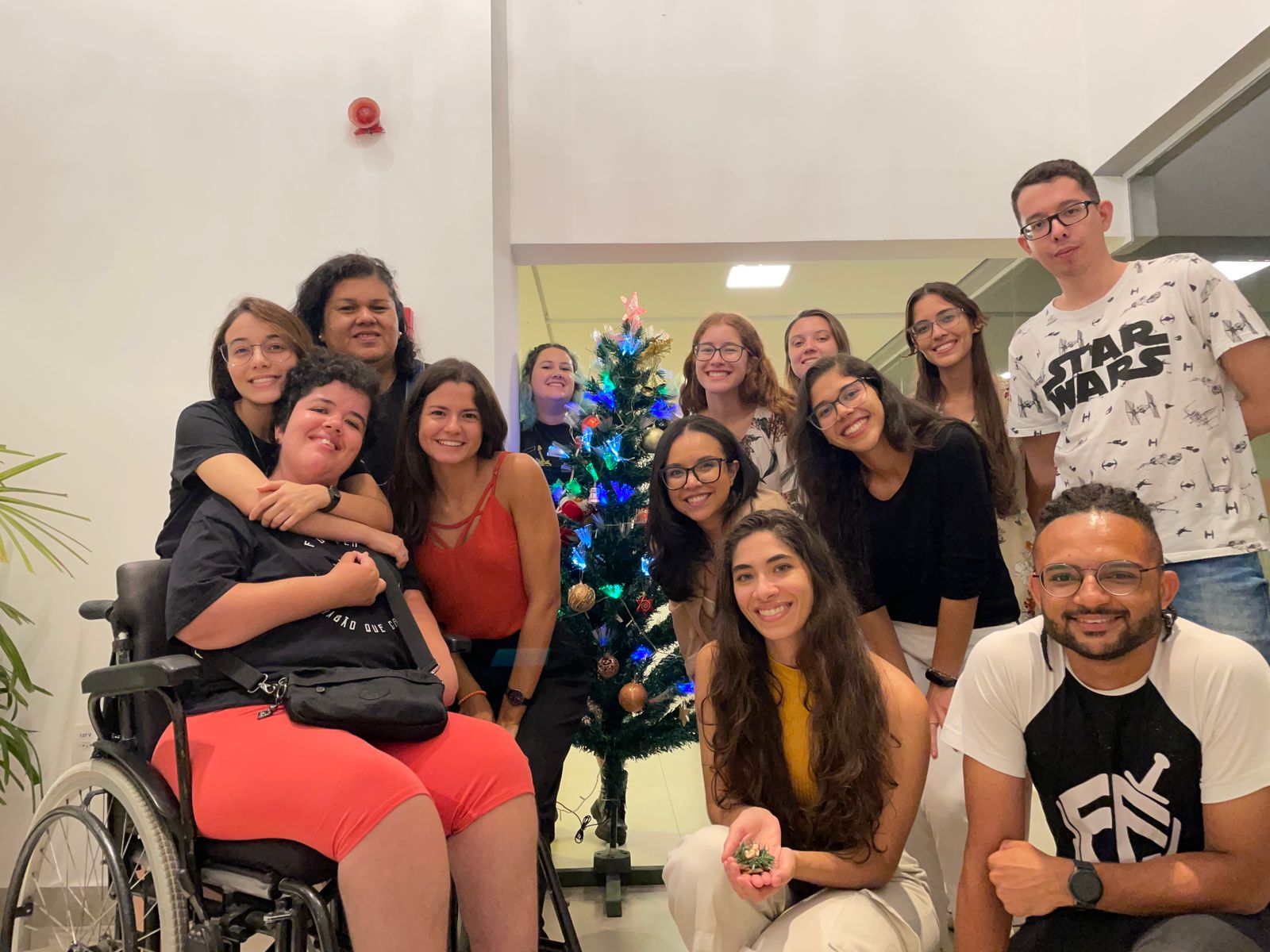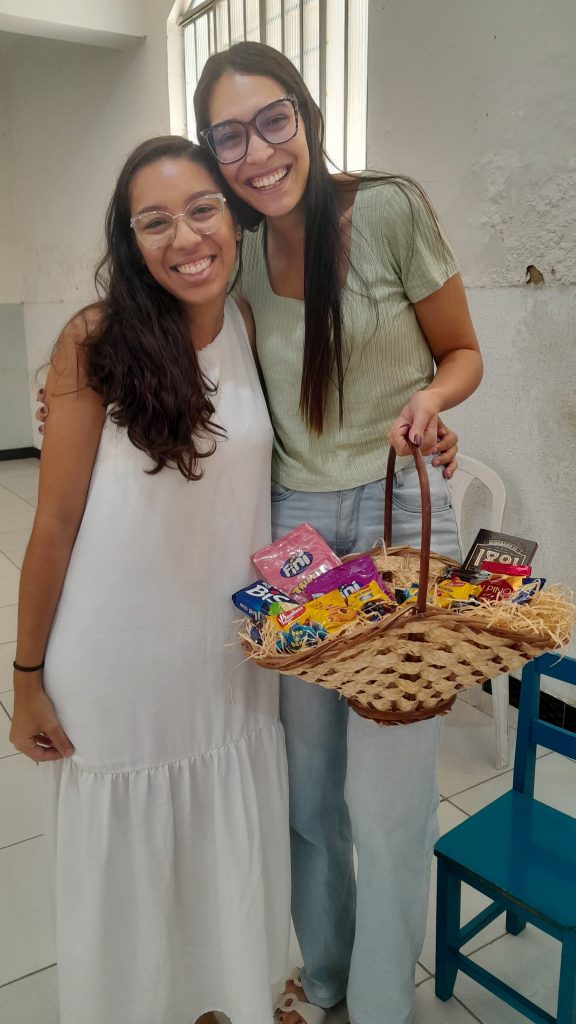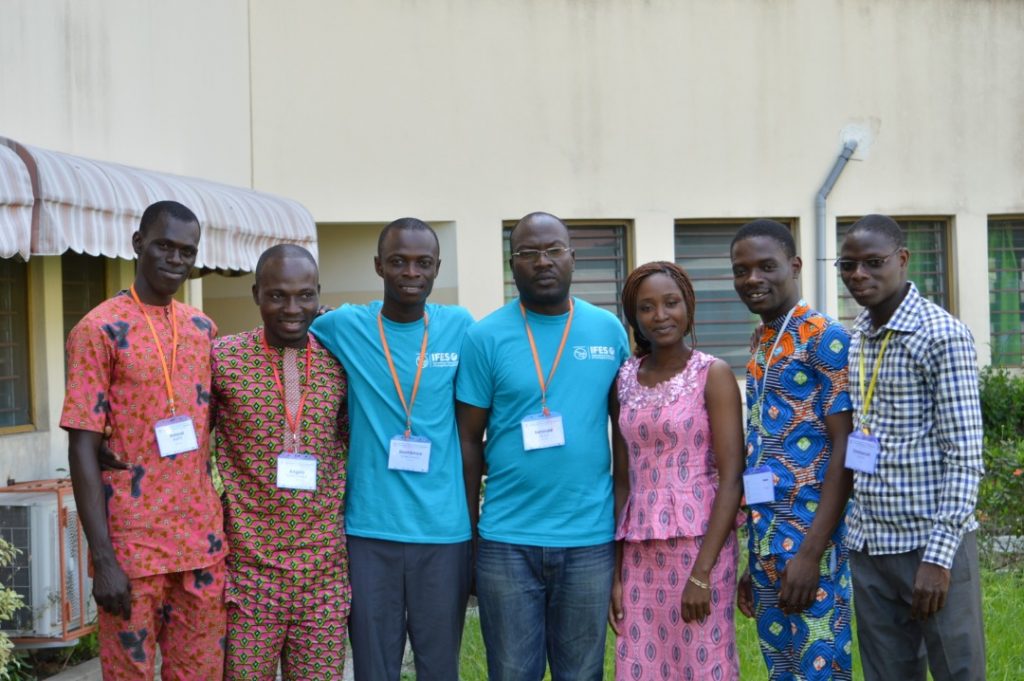
Global Perspectives on Giving
Theological, personal, and devotional reflections from around IFES
This month we’re giving voice to individuals from three different IFES regions, hearing first-hand their thoughts on generosity and giving. On 17 April, we’ll all have the opportunity to take part in IFES Global Giving Day. So, let’s prepare today by prayerfully reflecting on these perspectives.
The first – a blog from ABUB Brazil – reassures us that the theme of giving flows through the whole biblical story. It’s a helpful reminder that we fail to do justice to any biblical topic with a few “proof texts”. With its positive overview, it presents generosity as an attribute of God that we’re called to reflect wholeheartedly rather than seeing it as a command we must coldly obey. Ghift’s experience of giving in IVCF Philippines shows what this can look like in practice. And Kehinde’s devotional emphasizes that generous giving is indeed something we must learn to practise. So, let’s hear from them.
A THEOLOGICAL PERSPECTIVE FROM BRAZIL
What does the Bible say about generosity?
From Genesis to Revelation, the Word of God teaches us about generosity
Josué Penteado
This text is part of the “Gratitude breeds generosity” campaign. To find out more, click here.
When we talk about generosity in the Bible, we almost always turn to the same scriptures. We realise that, while this is an important topic, it’s only one of hundreds of themes that the Scriptures teach us. There’s no denying that some passages are more straightforward than others when it comes to our call to be generous. But have you ever stopped to think about the fact that this is also a key theme running through virtually the entire great story of redemption?
So, what does the Bible say about generosity?
Beginning with the creation story, we see God the Trinity, abundant in all things, overflowing with generosity as he creates the world much like a gift, full of resources and possibilities. Adam and Eve didn’t pay any rent or taxes. Their responsibility was to enjoy the abundant resources they had received and, as people made in the image and likeness of the Creator, to continue to let the river of generosity flow and “be fruitful and increase in number; fill the earth…” (Genesis 1:28-30).
Right from the terrible story of the Fall, which begins in Genesis chapter 3, we witness what is in fact a rejection of the human calling to be generous. Men and women choose to obstruct the flow of divine gifts in creation by refusing to obey the Creator. This choice is evident in the story of Cain and Abel, as well as with the Tower of Babel, when selfish interests prevail over the desire to bless the earth and others, leading to terrible consequences such as death and isolation.
What we’ve seen since then is want and fear, generating ongoing conflict between our tendency to hold tight and protect our possessions and resources, while God calls us to come back to trust in His generosity, so that we can share and bless others once more. In other words, it’s the story of Israel, called to live in the land of plenty, “flowing with milk and honey” (Deuteronomy 6:3), but they refused to open their hands and let that wealth flow even to their own oppressed and downtrodden people (Isaiah 1-2).
The generous gift of life
The call to return to the path of generosity was definitively made by God himself when he sent his son Jesus, who “became poor, so that you through his poverty might become rich.” (2 Corinthians 8:9). Only the one who knows the true source of all wealth is capable of being so generous. And that’s what Christ did for us. He has poured out so many blessings that it’s almost impossible not to let them overflow to those around us who need what we’ve already received.
The biblical narrative ends with a promise that the still partial reality of the Kingdom of God will become physical and everlasting: “Let the one who is thirsty come; and let the one who wishes take the free gift of the water of life” (Revelation 22:17).
So how should those who see themselves as part of this great story, and who are awaiting the fulfilment of these promises, live? By stubbornly fearing and protecting ourselves, or by trusting that blessing others is the most consistent way to live in this world created by a benevolent God?
Try this gift, open your hands (and your bank account, your calendar, and your heart) so you can enjoy the abundant world of the generous Creator.

This reflection by Josué Penteado was part of ABUB’s Gratidão gera generosidade (gratitude breeds generosity) campaign in late 2023. Josué is ABUB staff, responsible for Formation and Missionary Engagement and part of the executive staff team. The original article (in Portuguese) is here.

The gratitude breeds generosity campaign was a vital way for ABUB to avoid staff lay-offs this year. Local student groups were involved in planning and running it – with Bible studies, prize draws, and the sale of treats like ice candy. The movement gives thanks that through this and other initiatives God has provided for all staff to remain in post through 2024.
A PERSONAL PERSPECTIVE FROM THE PHILIPPINES
Giving Ghift
By Princess Ebo
It was difficult for her to pinpoint the when – on supporting the ministry financially. But it was almost instantaneous for her to recall the why.
Ghift Lyn Bel Sumagaysay, fondly called “Jap-jap” by her family and friends, is a graduate of Silliman University. She is a licensed civil engineer and is currently working for the local government of Dumaguete City. Her involvement in Inter-Varsity Christian Fellowship (IVCF) began in high school when she attended the regional Sibol Camp. Since then, she has seen the dedication of the ministry partners who helped her raise funds for fare and registration fees, immensely easing the burden off her and her parents. Yet, it was when she fully immersed herself, serving as a student leader and camp counsellor, that she understood the great need and urgency for donors and partners.

“Knowing the cost to sustain the activities of the movement, seeing the desire and drive of the students to be able to join these activities, and acknowledging that money doesn’t appear by itself in the hands of the leaders, were God’s way of prodding me to allocate a part of my savings for IVCF,” Ghift shared.
So, she gave – but not with the spare change that she had to scour for deep in her pocket. She gave with palms wide open – willingly apportioning an offering to God from her baon, despite other important needs such as fare, school projects, and snacks.
“When I see that God can use even the littlest amount I sacrifice, and with His promise that He is my portion, it calmed my heart to give confidently and joyfully,” she said.
Convinced that “ministry is the outflow of one’s relationship with God,” Ghift continues to commit to giving now that she is a working professional. She wishes that “the gratefulness the Lord has instilled in [her] through those who have helped [her] before, will also be felt by the students and encourage them to do the same; that the cycle of giving and gratitude will continue for every generation of students and graduates.”
“As I see the lives of students and graduates changed by God, mine included, it just leads me to the conclusion that every peso invested for God is worth it,” Ghift said, adding: “the fulfilment and joy He continues to cultivate in my heart cannot be exchanged for anything else.”

This article by Princess Ebo was published in March 2024 on IV Connections, the news blog of IVCF Philippines. Princess graduated in Mass Communication and currently works as an account manager for a famous online food delivery service. She volunteers as a Bible study leader at a IVCF campus chapter and is special events coordinator for local IVCF events.
A DEVOTIONAL PERSPECTIVE FROM NIGERIA
Generous Living: Taking Initiative
By Kehinde Ojo
One day Elisha went to Shunem. And a well-to-do woman was there, who urged him to stay for a meal. So, whenever he came by, he stopped there to eat. She said to her husband, “I know that this man who often comes our way is a holy man of God. Let’s make a small room on the roof and put in it a bed and a table, a chair and a lamp for him. Then he can stay there whenever he comes to us.’’ (2 Kings 4:8-10)
It would not have been unusual for a prophet of Elisha’s status to have people come to him primarily for what they can get. What he may not have been familiar with were people who showed acts of kindness and generosity without expecting anything in return. But this and even more is exactly what he got on a trip to Shunem. When the wealthy woman invited him in, he may have thought her family had a problem that money could not solve. They must have needed deliverance, or healing of a disease that has defied medical care. They certainly needed a spiritual intervention.
Rather than asking for support of any kind from the man of God, this family takes the initiative to make their resources available by offering him a meal after a tiring journey. This invitation of guests—or, better put, strangers—to meals appears to be a norm for this family as the woman persuades Elisha to eat! (2 Kings 4:8a) Wow! She is giving away her meal and is not ready to take no for an answer. What a generous spirit! It appears that the meal was lavish and the atmosphere so cordial that Elisha soon becomes a regular guest at meals in this home. The woman, in consultation with her husband, then decides to take their generosity even further by building a guest chalet for Elisha. They are willing to release their resources freely to build and furnish a chalet for an itinerant minister. Notice how thorough they are in providing essential furnishings in order to guarantee a comfortable stay for their guest (v. 10).
It is important to state that not all donations are made with pure and sincere motives. Elisha may have thought that sooner or later, this family would make their request. To his amazement, however, they have no other motive than serving God’s purpose and becoming a blessing to those who come to their home. When Elisha presses further to know why they have shown such generosity, the woman states categorically that she and her family dwell in a safe and secure environment. Their generosity is borne out of freewill and a desire to serve. What amazing freedom they enjoy in their giving.
They challenge us to remember that individuals, families, or institutions are to give to add value, rather than focus on what they get back in return for their giving.
This particular story brings to light another key principle in generous living. This couple took the initiative to give, not because they were asked. It appears they were always looking for opportunities to make a difference. This virtue can be emulated by all, irrespective of cultures or circumstances.
So, a challenge:
- Read 1 Timothy 6:17-19.
- Pray for God to give you joy in making a sacrificial gift.
- Respond by obeying what God puts in your heart.
- Prayerfully choose an individual, family, mission agency, or good cause that needs any kind of support or acts of kindness. It may involve the use of your talent, time, or treasure. You may want to make a visit, buy a gift, offer a service, provide counsel and/or encouragement, give a donation, pray, offer a meal, and so on. Reach out today to such persons, families, or organizations as guided by the Holy Spirit and act on the guidance that you have received.

Kehinde Ojo is Program Director for Indigenous Support Development, the IFES global resource ministry that equips national movements to raise local support for their ministry. He was born and raised in the South-Western part of Nigeria and became a Christian at university through the witness of NIFES, the IFES movement in Nigeria. After graduating in electrical engineering, he served with NIFES for 18 years.
This article was adapted for IFES from a piece he wrote for The Seven Day Generosity Challenge, produced by the MB Foundation.
A WORLD OF GIVING
In countries around the world, all kinds of gifting customs exist – like not giving sharp objects, picking bright coloured wrapping paper, using both hands when offering the gift, and offering the ‘right’ number of flowers. But despite these differences, we all recognise that giving and receiving gifts is a fundamental part of being human. The three perspectives above help us see the pan-cultural and spiritual essence of giving. Wherever we live, whatever our societal norms, they offer sound advice for everyone: to shun a lifestyle that insists on fearing and guarding – and instead be confident that blessing is the most consistent way to live in our kind Creator’s world; to see giving as the outflow of our relationship with God; to give for no other motive than to serve God’s purpose and become a blessing to others.
Thank you Josué, Princess, and Kehinde for the gift of your writing.
PUT THESE PRINCIPLES INTO PRACTICE WITH GLOBAL GIVING DAY
“Global Giving Day is a unique avenue where we can unleash a generosity of spirit and a generosity of resources to strengthen and uphold one another.” Annette Arulrajah, IFES Associate General Secretary for Global Fellowship
Visit the Global Giving Day webpage to discover more about this year’s appeal: into all the world.
SHARE YOUR WRITING
We’d love to publish more of what students and staff in our national movements are thinking and writing. If you’ve written an article for your movement or would like to write about an issue relating to campus ministry, then please get in touch: hello@ifesworld.org



